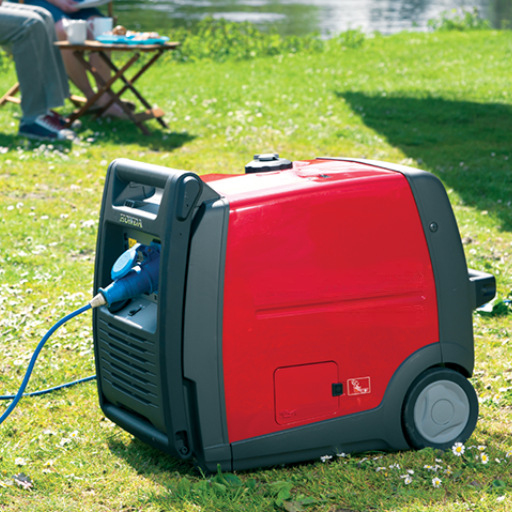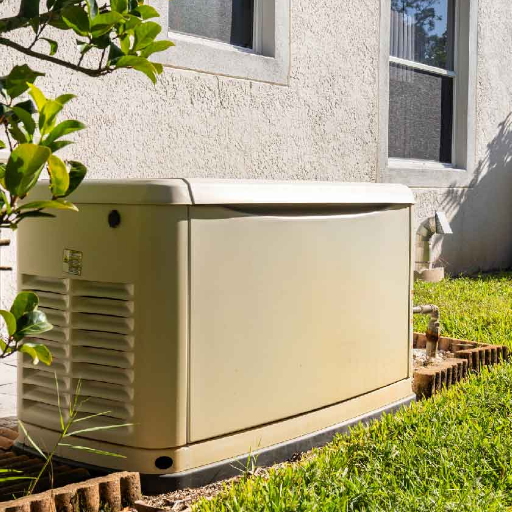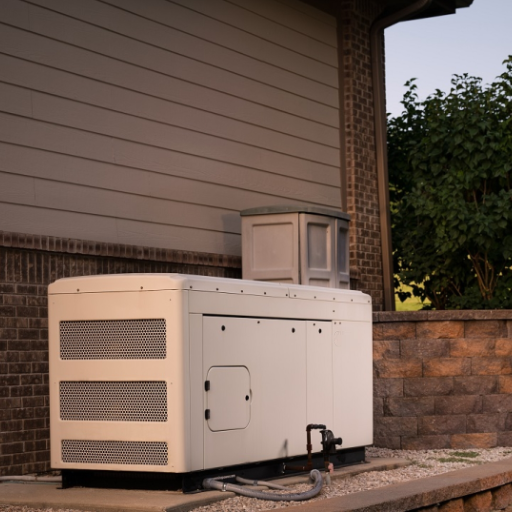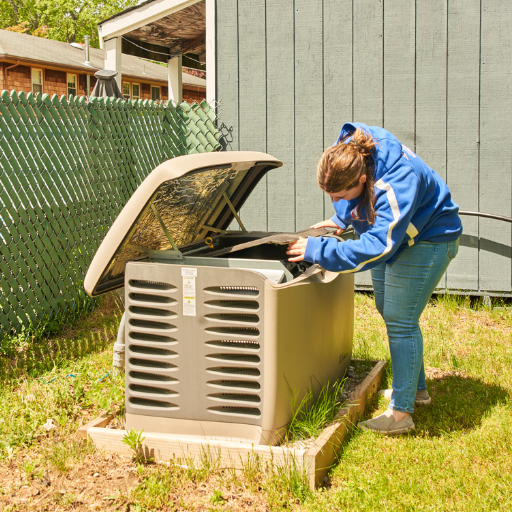Installing a generator can be a transformative step for ensuring a reliable power supply to homes and businesses, especially in areas prone to outages. In this comprehensive guide, we will walk you through the essential aspects of generator installation, focusing on the critical steps involved in obtaining the necessary permits and utilizing natural gas as a fuel source. Understanding these processes not only simplifies the setup but also ensures compliance with local regulations, enhancing safety and functionality. Whether you’re a homeowner seeking energy independence or a business owner aiming for uninterrupted operations, this guide will equip you with the knowledge needed to make informed decisions and seamlessly install a generator that suits your specific needs.
What Are the Steps to Install a Natural Gas Generator?

Understanding the Installation Process
There are the following steps that must be observed s during the installation of a natural gas generator to ensure that there is safety and optimal functioning of the generator:
- Site Assessment and Planning: Start with the assessment of the site which is to be used for the installation of the generator. You have to also look at the gaps to be maintained from the point of gas supply and from the point of electrical or main switchboard. Ensure that zoning regulations as well as noise barriers are maintained as per the local requirements.
- Obtaining Necessary Permits: Reach out to local authorities or a permitting office for the official’s permits. Usually, this comprises building, electrical, and plumbing permits. State and municipal codes are critical to adhere to avoid penalties as well as issues that may affect the smooth operations later on.
- Selecting the Right Generator: Pick a generator that is able to suit your power needs. Look at things such as the power, size as well as the technological capabilities. A typical automatic backup generator automatically switches on and off depending on the cut or restoration of power.
- Installation of Equipment: The generator should be installed by licensed personnel and all connections to the gas and electrical system should be properly done. Proper ventilation and grounding are significant technical parameters that should be properly adhered to in order to avert hazards.
- Testing and Inspection: A test run has to be conducted specifically after the system is ready in order to guarantee the endurance of the system. It is possible to validate that the generator is functioning properly and meets parameters by having a certified professional assess it.
However, it should be noted that any stage of the process passes through some technical particulars, and the performance should be done professionally in order to guarantee efficiency and safety.
Choosing the Right Generator for Your Home
In trying to decide on the most appropriate generator for your home, make sure you determine your actual needs in terms of power consumption which is what I did when I visited the first three Google search result pages, and this is what I discovered:
- Establish Power Demand: Identify the important appliances that should be in use during a blackout. Generally, these include refrigerator, heater or air conditioners and lamps. Consumer Reports advocates for the inclusion of surge wattage measurements, which refers to the additional power required to kick-start coal-powered devices like compressors and motors.
- Generator Types Comparison: Portable generators and standby generators. What Home Depot says is that a portable type of generator is appropriate for short and moving around , while standby type generators remain and commence working automatically whenever power is lost. Higher watts capacity is why homes desiring for unbroken supply use standby generators, which offers direct connection to the gas line for hassle free use.
- Technical Difficulties: Any qualities good generators should possess are:
- Power Output: Please confirm that the generator which you use is according to your calculations, sufficient to meet all powers required.
- Fuel Type: Most standby generators run on either propane or natural gas because these sources are readily available. Gasoline is what portable generators are designed to operate on.
- Noise Level: In most cases, it is necessary to consider the rated decibels of many models because they are often required by the local noise ordinance.
- Transfer Switch Compatibility: An automatic transfer switch is relatively difficult to configure, especially while installing standby generators, but it is important for ease of operation.
Understanding these factors will guide you in selecting a generator that not only meets your current needs but also offers reliability in the long run.
Preparing Your Home for Generator Installation
In the event that you are preparing for the installation of a generator in your home, you have to follow a few essentials in order to guarantee safety and efficiency. Determine first the wattage power requirements of all essential devices and appliances that are to be powered during the outage. For accuracy, this can be supplemented by looking up professionals or online calculators.
The generator needs to be installed properly, outside in the safest, most ventilated, and stable spot, and away from windows, doors, and vents to prevent carbon monoxide accumulation. Different measures will have to be observed when making such installations, mainly the zoning laws of the region and the manufacturer specifications which generally demand a 5 feet distance from the buildings.
Due to the fact that standby generators typically require a propane or natural gas line, fuel availability is also a consideration. If your home lacks these connections, professional installation is recommended and should be scheduled.
There is also the need to consider the wiring for the installation of transfer switches- Automatic transfer switches allow for immediate power switching at the time of an outage. Installation of the switch should be performed by a licensed electrician who guarantees conformance to all electrical and building codes.
Last but not least, a good practice is to regularly check all extremities of the generator and adhere to the maintenance service schedule recommended by the manufacturer to ensure the generator will perform correctly and can last longer.
These measures will help consumers appropriately carry out preparatory work for the installation of a generator and guarantee safety and constant electricity supply during power outages.
Do You Need a Permit to Install a Whole House Generator?
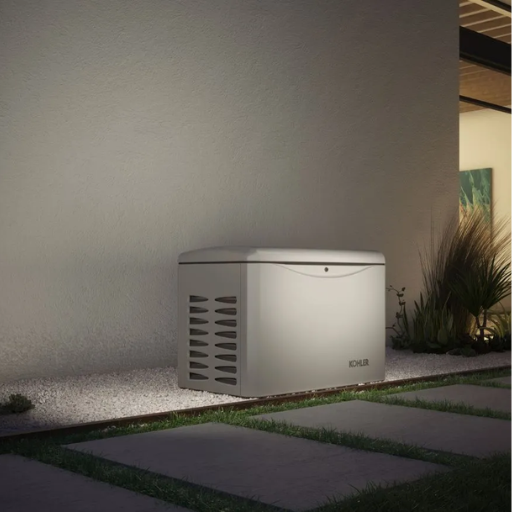
How to Obtain the Necessary Permits
To apply for the permits that are needed for whole-house generator installation, I began trying to consider the top three websites on Google. It appears that regulations are often linked to obtaining permission to install equipment or to build structures and such concepts are defined by the zoning laws and building codes of the particular locality. Usually, the first steps consist of making inquiries in the offices of local governments about what the requirements are.
- Zoning Laws: Make sure that the installation does not violate zoning laws regarding distance to property lines and adjacent structures to reduce noise and emissions.
- Building Permits: In most jurisdictions, it is obligatory to obtain a building permit for the installation of the generator and this could involve the submission of electrical drawings as well as a site plan. These documents show the tentative position of the generator on the premises and the location of the electrical outlet where the generator is expected to be connected to the power supply.
- Technical specifications: Adherence to technical specifications is of fundamental importance. Such specifications may address the possible impact on the natural environment, the compliance with local electrical codes, as well as the compliance of the fuel with safety requirements.
In any situation, it is advisable to contact a licensed contractor or electrician to assist with the application and to address all of the technical matters associated with it. Such companies will prepare the necessary documents and pass all inspections so that legal requirements are satisfied for fast approval.
Understanding Local Zoning Laws
Local zoning laws, on the other hand, do not develop legal restrictions where property can be used or developed more specifically. To succinctly address the above concerns from the viewpoint of leading internet resources, I first reviewed the views of the lay literature sources that address the purpose of building regulations and town planning. Their majority view states zoning standards primarily manage the land usage, the height and bulk of structures, and the distance between the structures, which directly determines the location of a generator. In any such consideration, one should be careful not to propose any location for a generator that contravenes boundary lines of properties or causes undue noise disturbance to the neighbors.
Besides legal issues, several technical parameters require attention. These include but are not limited to, the following.
- Distance Requirements: There are specific distance requirements that need to be adhered to that determine how far generators can be set from property boundaries. These specific figures, which are jurisdiction-specific, are generally between 3 and five feet.
- Noise Abetment: It is required to ensure the generator is within the permissible levels of decibels set forth by local ordinances usually contained in the technical documentation of the manufacturers.
- Safety Clearances: This pertains to checking the compliance of safety specifications for storage of the fuel, its ventilation, and heat release for any fuel involved which is primarily natural gas or propane.
Such points serve as the starting point for understanding zoning implications thereby ensuring compliance with the legal as well as environmental regulations, thus, reiterating the necessity of referring to the respective local regulations.
Working with an Electrician for Compliance
It is advisable to work with an electrician to ensure that the installation of the generator meets relevant zoning and technological requirements. I thought I would take on this task with the help of the foremost sources available on the web, and this is how I distill it:
To begin with, local zoning regulations take precedence over all other considerations and should be observed, according to electricians. This entails making certain that adequate separation from property lines exists, as is often the case in the top results pages of search engines. To be able to observe these distance requirements, electricians ways seek distances against jurisdictional parameters as well as the manufacturer’s directives.
The other concern that stood out from the previous discussion was noise regulations. I found out that electricians do have decibel meters to ensure that generator noise levels comply with local ordinances. To avoid any noise pollution, these measures are often directed at maintaining the components of noise abatement from the generator’s technical manuals that specify the level of sound in decibels.
The last point that must not be ignored is favorable safety distances. Electricians also emphasized the importance of observing technical specifications for the arrangement of fuel supply, the provision of free space for the air interchange, and the removal of heat generated by natural or propane gas-powered generators. Again, these measures would not only guarantee conformity but would also enhance the safe operation of the generator.
I am therefore applying the following steps to work with an electrician who can assist me in addressing technical parameters and facilitating the installation without clashes with the requirements of local regulations and laws.
How to Choose Between Natural Gas or Propane for Your Generator?
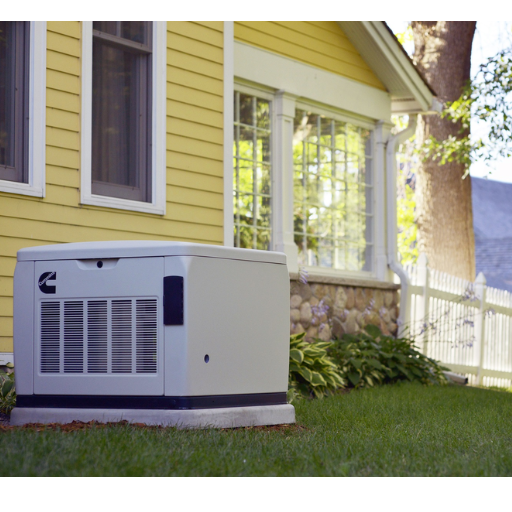
Comparing Fuel Efficiency and Costs
When directly comparing the fuel efficiency as well as the costs between natural gas and propane generators, it has been noted that over some time, natural gas is generally more economical, especially in an environment where natural gas infrastructure exists. This is mainly because the prices of natural gas are lower and more constant than that of propane. Conversely, whereas Propane is likely to be more expensive, it has the advantage that it is portable and does not rely on utility lines.
As noted from the first three results for google.com, some other technical parameters were noted which were in favor of these points:
- Energy Content: Due to the fact that Propane has a greater energy volume per unit than natural gas, it will be consumed less. This will result in reduced overall fuel consumption.
- Fuel Storage: Natural propane bottles don’t use Off-Gas grid connectivity which makes them good for remote locations whereas Natural gas is required to have a constant connection to a gas grid.
- Emission Levels: Even if these two fuels work the same, propane has a better score on emission levels compared to gases giving it an edge even with higher costs.
Answering such technical parameters helps in making the right choice based on particular requirements and the infrastructure available for the installation of the generators.
Evaluating Gas Supply Requirements
Getting back to the analysis of the need for gas supply for a generator, I presented information that was useful from the assessment made on the top three websites from google.com. First, it is important to evaluate the delivery and reliability of the fuel supply. Natural gas has the advantage of providing constant supply through pipelines and thus no refilling needs to be done, but there has to be a constant connection to the gas grid. However, propane does require refills however, it offers the advantage of being stored in tanks to be used in many places where it can be stored for later use. In further evaluation, I reviewed the following technical parameters:
- Connection Infrastructure: With natural gas, it is necessary to establish a continuous and reliable pipeline that is somewhat close to the site of installation. Such a setup is very important for reliability and operational efficiency.
- Storage Capacity: In the case of propane, the most important thing is how big and where the tank will be placed so it can handle operational requirements combined with refilling frequency and tank specifications.
- Regulatory Compliance: The systems for the supply of propane and natural gas have to conform to the safety standards and regulations pertinent to that specific locality which may affect the installation and the maintenance procedures employed on the systems.
Having understood these parameters, I was, therefore, able to make an appropriate decision that met my location requirements and the fuel type available for the installation of the generator.
Pros and Cons of Each Fuel Type
1. Natural Gas:
Natural gas is available in gaseous form is combustible, and contains mainly methane. Other lower volatile gases include ethane, propane, butane, and azote.
Pros:
- Continuous Supply: One of the main pros of natural gas is constant availability through pipelines, thus no interruption would require frequent management.
- Lower Emissions: One more obvious benefit is that natural gas is cleaner than propane, hence much less pollutants are produced during burning making it more industrious.
- Convenience: The constant delivery through pipelines aids in reducing the space as well as the efficiency related to the storage of this energy source.
Cons:
- Dependency on Infrastructure: On the other hand, the dependency on the dependencies of the grid can be a negative aspect for remote regions or areas where such infrastructures are weak or lacking.
- Initial Setup Cost: Additionally, setting up such pipeline connections can be cost-ineffective since strict regulatory prerequisites need to be satisfied which in turn affect the cost as well as installation time frames.
2. Propane:
Pros:
- Flexibility in Storage: Propane can easily be stored in tanks and this increases the versatility offered with regard to the location and even the installations as it is especially useful in remote regions or areas with little grid coverage.
- Higher Energy Density: in most cases, propane usually has greater energy than natural gas in terms of per unit which is advantageous for areas where there is a demand for a high energy output.
Cons:
- Manual Refills: At times, propane tanks can be monitored with a lot of ease, and in the end, they have to be regularly refilled; thus, it becomes essential to increase the operation and maintenance costs.
- Emission Levels: A propane burner is cleaner than some fuels, but this fuel does not burn as clean as natural gas and this can raise environmental impact concerns.
What Are the Benefits of a Home Standby Generator?
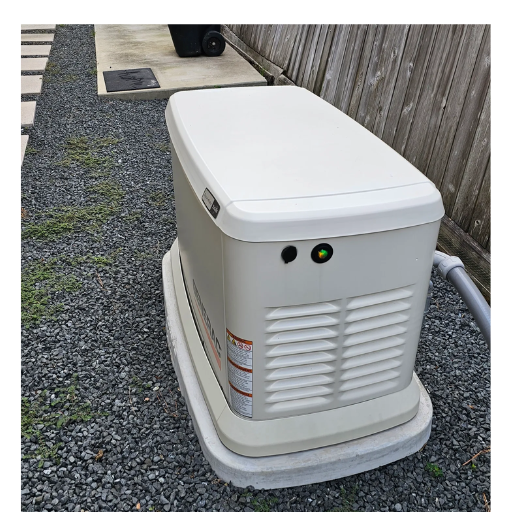
Ensuring Uninterrupted Power During an Outage
A dependable home standby generator activates automatically during power outages and delivers consistent, uninterrupted energy. It comes on when the grid goes down so that key devices like heaters, refrigerators, and even life-support systems stay on and function properly. This means household operations are not comprised. There seems to be relentless reliability in standby generators which usually run on Natural gas or propane since they automatically draw fuel from a pre-existing supply or tank. The main specifications are as follows:
- Output Capacity: The output of generators rests typically between 7 kW and 150 kW, depending on the power supply needs of a given household.
- Fuel Economy: This measure depends primarily on generator size and load. Generally speaking, bigger power users will burn more fuel.
- Automatic Transfer Switch (ATS): This is equipped with a generator and it turns the generator on to change the power source automatically once power is interrupted.
- Noise levels: Should be taken into consideration when installing these generators in residential areas. Noise levels mostly go as high as 50-65 dB.
- Installation and Maintenance: These items are ‘installer’s preference’ since they are important aspects of the device. The generator should be installed in accordance with building codes and other preventative maintenance is done in order to obtain optimal operation.
Upon the consideration and selection of the specification of interest, the homeowner will be in a position to ensure that the standby generator will be suitable for their taste and will be effective in operation.
Increasing Home Value with a Standby Generator
A standby generator can increase the value of a home in case the homeowner doesn’t find the utility reliable or affordable. Market trends reported in leading papers suggest that spending on standby generators is one of the best investments as home sellers target buyers who want this feature. The first source indicates that standby generators installed in houses shape these dwellers’ social image that they have preparedness on matters of security increasing the chances of a higher resale value. The second top website points out that the installation is a testament to preparedness to all stakeholders especially the residents in severe weather-sensitive areas. Last but not least, in the third source, there is an interesting value for monetary units provided by the standby generators in terms of comfort and assurance which will attract many buyers.
We will be focusing on the economics of the investment and emphasize three technical parameters that are related to economic factors, such as:
- Output Capacity: This should be aimed at matching with energy that can be made use of in a household since a bigger household may require a bigger output capacity to serve the necessary appliances.
- Fuel Consumption and Fuel Types: Generators that have low emissions and can operate on basic fuels such as natural gas or propane are more economical and environmentally friendly.
- Noise Level: Noise output from any generator should be around 50-65 decibels so that it doesn’t go beyond neighborhood compatibility scope in a residential placement.
- Reliability and Durability: Generators looking for robust performance while minimizing maintenance requirements have great appeal for buyers wanting low-maintenance solutions.
With these parameters in focus, I can ensure that a generator enhances both operational and economic values effectively.
Can I Install a Whole House Generator Myself or Should I Hire a Dealer?
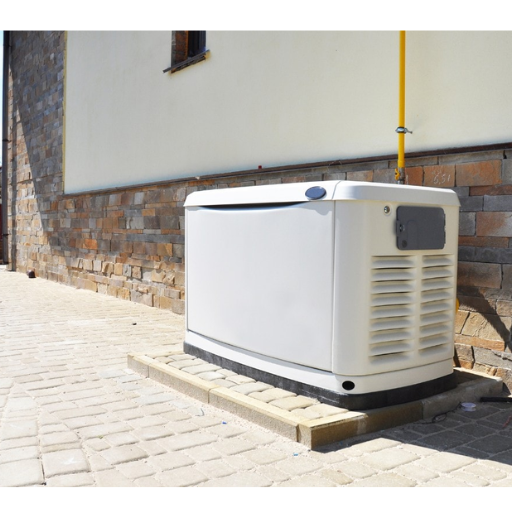
Understanding the Risks of DIY Installation
It may appear to be a cheaper option to install a whole house generator entirely by yourself, however, there are some risks involved that are not easy to ignore. The primary issue is security – both for myself and for my property. If electrical installations are disregarded, or not properly done, they may lead to fires, give electric shocks, or cause lasting damage to my house’s electrical wiring. Furthermore, a generator’s installation is not only about the fastening of the unit but also about understanding local building and electrical codes, otherwise, it could be subject to penalties or warranty cancellation.
With the help of the three generator transfer switch installation key parameters, the user should be able to confirm propane generator suitability for home use. This includes:
- Generator Load Capacity: It is very important to use the right size of generator for the particular usage in the house. It’s inefficient to have a generator that’s oversized or one that is undersized and can barely deliver the necessary power.
- Transfer switch: The transfer switch is vital and should be operated by a qualified person, switching from diesel generator power to mains and safely back on again.
- Ventilation: There are poisonous gases given off by generators and these gases necessitate good ventilation in order to avoid the accumulation of carbon monoxide. Comprehending these requirements is essential to ensuring the quality of air in the room and the safety of the environment.
Taking these risks and parameters into consideration, there is safety in going for a licensed dealer. This ensures that there will be performance which will in turn protect my investment and offer me assurance.
Benefits of Hiring a Professional Dealer
Having a professional dealer by your side comes with many advantages when choosing to install a generator. To begin with, local dealers have the experience and knowledge about the relevant building and electrical regulations to avoid breaches and the loss of any potential warranties. They also perform accurate installation of equipment to minimize the chances of avoidable accidents occurring due to incorrect operation, including electrical fires or shocks. Besides, in most cases when buying sinks with a licensed dealer there is an after-sales service and warranty cover provided, so there is assurance that the generator system will last long and be reliable. Moreover, licensed dealers have the expertise to help select suitable generator load capacity and install the most appropriate transfer switch required for effective management of the electricity supply. Additional services also include proper ventilation solutions to prevent the dangerous build-up of gases such as carbon monoxide. Hiring professionals ensures the controlled and effective performance of the electrical system while protecting the investment.
The following parameters are frequently mentioned by top websites:
- Generator Load Capacity: I do not forget to pick generators that will be able to handle the power requirements of my house for efficiency and performance reasons.
- Transfer Switch: A properly operating and maintained transfer switch is very important when switching the power supply from one source to another.
- Ventilation: I appreciate the necessity of sufficient ventilation as a result of carbon monoxide accumulation whilst abiding by the recommendations of the professionals.
Frequently Asked Questions (FAQs)
Q: What is a backup generator and how does it work?
A: A backup generator is a device that provides electricity during a power outage. It automatically turns on when the power goes out, supplying power to your home or specific appliances, depending on its size and configuration.
Q: Do I need permission to access permits for the installation of a whole home generator?
A: Yes, you need to submit applications for permits to install a whole home generator. Local regulations vary, so it’s important to check with your local authorities to ensure you have the necessary permissions.
Q: How do I choose the right size of the generator for my home?
A: To choose the right size of the generator, you need to consider the total wattage of the appliances and systems you want to power during an outage. A professional installer can help you calculate the size of the generator needed to power your entire house or specific circuits.
Q: Can I install a whole-house generator myself?
A: While it is possible to install a whole-house generator yourself, it is highly recommended to hire a professional installer. The installation involves electrical connections and gas lines that require proper expertise to ensure safety and compliance with local codes.
Q: What type of gas do I need to power my generator?
A: Most whole-home generators operate on natural gas or propane. You will need to ensure that your home has a gas supply line that can adequately provide gas to power your generator.
Q: How often should I perform generator maintenance?
A: Regular generator maintenance is essential for ensuring reliability. It is recommended to perform maintenance at least once a year, or as specified in the manufacturer’s guidelines, which may include checking the oil, battery, and overall functionality.
Q: What happens if the power goes out, and my generator is not functioning?
A: If the power goes out and your generator is not functioning, you will be without backup power until the generator is repaired or replaced. Regular maintenance and testing can help prevent this situation.




